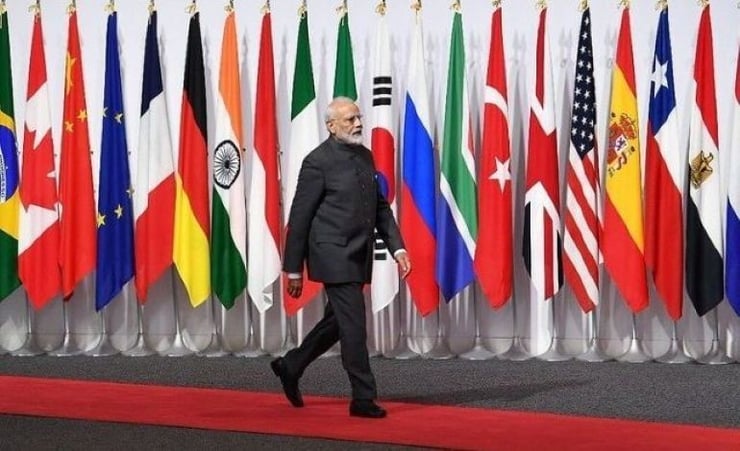GEOPOLITICAL RIVALRIES MAR G20 TALKS

India’s leadership of the G20 was sorely tested when the summit held in New Delhi ended on March 2 with no communique.
The absence of a communique indicates the failure to achieve a consensus among the participants, and the onus to build such consensus is squarely on the host.
That said, it could be argued that a single issue thwarted the prospect of a unanimous outcome, tilting the talks towards deadlock.
Russia’s war in Ukraine dominated the discussions and India, currently presiding over the G20, acknowledged that, in the end, disagreement defied reconciliation, leading to the delegates from 19 wealthy nations, as well as the European Union, dispersing without issuing a joint statement.
Instead of a closing statement, New Delhi cobbled together a “chair’s summary,” citing the divergence of views around the war in Ukraine.
As G20 president, India tried to stay above the fray and pushed its agenda on behalf of the Global South, which had unsustainable debt, digitalisation, inflation and food security at its centre.
The challenge before New Delhi was to make the G20 look beyond Ukraine. But with China and Russia jointly opposing a majority statement condemning the war in Ukraine, India’s bid to forge a diplomatic consensus fell apart.
No doubt, India’s own ambivalence on Russia did not go unnoticed. New Delhi has held firm in the face of mounting pressure to denounce Russia’s aggression in Ukraine. It has consistently abstained from voting on UN resolutions condemning the war in Ukraine, including a vote held in the UN General Assembly recently. It has stepped up its oil imports from Russia, which also supplies arms to India.
National interest and compulsions of realpolitik, no doubt, lie behind New Delhi’s strategic choices.
But, as the G20 host, India has had to resort to a diplomatic fig leaf to camouflage its position on Russia by bringing up the “UN Charter, international law, and respect for the sovereignty and territorial integrity of states” in its statements on Ukraine.
Indian External Affairs Minister S. Jaishankar’s observation that India “tried, but the gap between the countries was too much” is a telling postscript to its efforts to choreograph a consensus out of disharmony.
But the summit was not devoid of optics.
At the foreign ministers’ session in Delhi, Russia’s Sergei Lavrov met Antony Blinken of the US on the side lines. The brief encounter came on the heels of bellicose pronouncements by Russian officials over US “ blackmail and threats.”
While opening the session, Indian Prime Minister Narendra Modi skirted the Ukraine war but hinted that geopolitical tensions could hamstring talks.
So, when delegates and guests sashayed to the venue where India was hosting the Raisina Dialogue 2023, timed to match the G20, in the Indian capital, the transition was almost cathartic.
Touted as India’s “leading geopolitical and geoeconomics conference,” the Raisina Dialogue, which was inaugurated by Italy’s Prime Minister Giorgia Meloni and India’s Modi, provided a platform for “correcting the perception” of a lack of unanimity within the G20.
India’s Finance Minister Nirmala Seetharaman said there was agreement on 15 out of 17 critical issues discussed by the G20 and identified the war in Ukraine as the sole divisive issue. She also took a veiled swipe at China and Russia for their obstructionist role in India’s unsuccessful bid to forge an elusive consensus within the G20.






